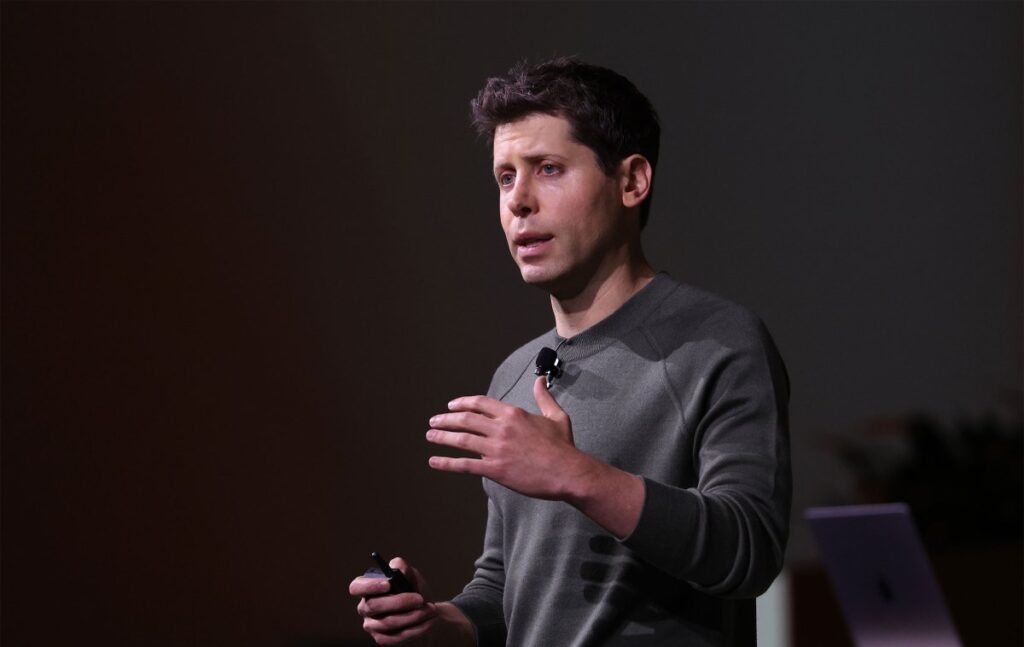AI and the Future of Humanity: Highlights from Oprah Winfrey’s Special
Late Thursday night, Oprah Winfrey hosted an intriguing special titled “AI and the Future of Us,” featuring a panel of notable guests including OpenAI CEO Sam Altman, tech influencer Marques Brownlee, and FBI Director Christopher Wray. The overarching sentiment of the evening leaned towards skepticism and caution regarding the implications of artificial intelligence.
Understanding the AI Phenomenon
Oprah opened the discussion with poignant remarks about the irreversible nature of AI, stating that "the genie is out of the bottle, for better or worse." She emphasized the need for humanity to navigate the challenges this technology presents while learning to coexist with its advantages and pitfalls.
"AI is still beyond our control and largely our comprehension," she warned. "Yet, we must accept that it is here to stay, serving both as a potential ally and foe. As adaptable beings, we will navigate these changes, but the stakes are incredibly high."
Debating AI’s Capabilities: A Conversation with Sam Altman
In a compelling first interview, Oprah engaged Sam Altman on his vision for AI. Altman made the bold claim that current AI technologies are capable of understanding concepts buried within the data they process. "We show the system thousands of words in sequence and ask it to predict what comes next, allowing it to learn underlying concepts," he asserted.
This view, however, met skepticism from many experts who argue that today’s AI systems, such as ChatGPT, simply operate on statistical patterns without genuine understanding or intent. While Altman highlighted the need for rigorous safety assessments akin to those in the aviation and pharmaceutical industries, he faced criticism for possibly overstating the technology’s capabilities.
Interestingly, while advocating for regulation, he notably supported a cautious approach without full endorsement of California’s AI safety bill SB 1047, which some former OpenAI employees argue is essential for imposing strict safeguards on AI development.
The Challenges of Deepfakes
The topic of deepfake technology inevitably emerged during the broadcast. Brownlee demonstrated the astonishing advancements in synthetic media by comparing AI-generated footage from OpenAI’s Sora to earlier systems. “The realism is advancing rapidly,” he noted, pointing out that while one can sometimes detect fakeness, the Sora output was remarkably convincing—perhaps too convincing, as Oprah herself admitted.
This conversation smoothly transitioned to an interview with Wray, who recounted a startling experience when an AI-generated video falsely depicted him making statements he never said. Highlighting how such technology facilitates sextortion, Wray pointed to a 178% rise in such cases driven by AI, where cybercriminals use fake images to exploit vulnerable individuals.
As the election season looms, Wray expressed concerns over AI’s role in spreading misinformation. He stressed the importance of vigilance in recognizing the potential for malicious actors to manipulate public perception, urging everyone to approach social media content with caution.
A Hopeful Note from Bill Gates
The discussion took an optimistic turn during Oprah’s interview with Microsoft co-founder Bill Gates, who envisions AI as a transformative force across education and healthcare. Gates described a scenario where AI assists doctors during appointments, enhancing the patient experience by effectively managing documentation and offering intelligent suggestions.
However, Gates somewhat overlooked the potential biases and inaccuracies stemming from AI systems. Research indicates significant disparities in how well AI understands diverse voices, with serious implications for areas like healthcare, where misdiagnoses can occur due to flawed algorithms.
In educational settings, Gates asserted that AI could provide tailored support and motivation for students, a claim not universally agreed upon. Reports show that fears regarding misinformation and academic dishonesty have led many institutions to reconsider their stance on AI tools like ChatGPT, occasionally leading to outright bans.
Amidst these complications, UNESCO and other organizations advocate regulatory measures to ensure that Generative AI (GenAI) is responsibly integrated into educational frameworks.
Conclusion
Oprah’s special on AI highlighted a spectrum of opinions, from concerns over safety and ethics to a hopeful view of technology’s potential. It underscored the growing complexities surrounding AI, emphasizing the importance of proactive engagement and awareness as we navigate a future increasingly shaped by artificial intelligence. As society continues to grapple with these advancements, the responsibility falls on all stakeholders to foster an informed dialogue that prioritizes ethical practices and safeguards.




